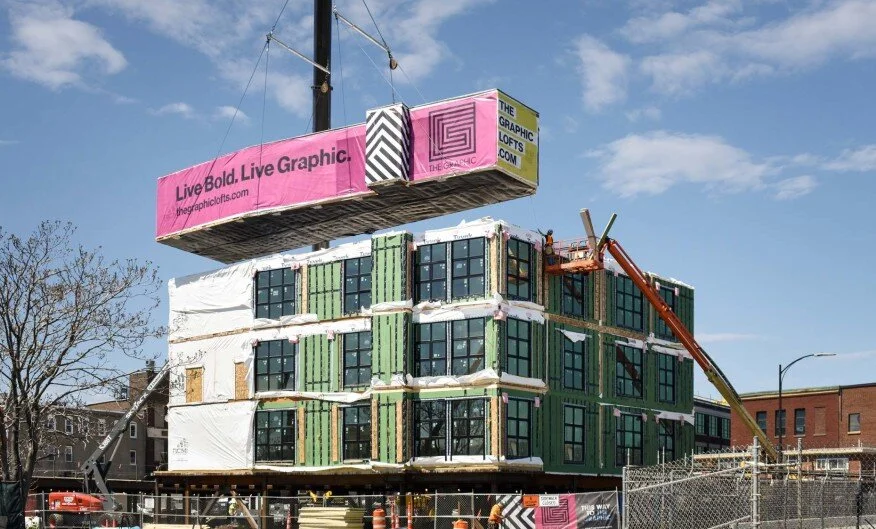As the world began grappling with the COVID-19 pandemic, many began to wonder what the economic fallout would be as businesses around the nation closed in an attempt to stop the spread of the virus. As large and small sectors of the economy ground to a halt, the likelihood of another economic recession became more and more imminent. While there’s little doubt that we are currently experiencing a recession, we still do not know what the future holds for a recovery or what the lasting economic impact will be.
Read MoreDespite the obvious slow down in real estate market, experts are quite optimistic that the real estate market will pick right back up once COVID-19 resolves, especially in a market like Boston. With an already limited housing supply, experts also don’t expect a big dip in housing prices either. “Once the economy can return to normal, and people can get back to normal, I think the fundamental shortage of homes will still be there. That’s why I don’t see much prospect for prices to fall very far as a consequence of this,” said Jeff Tucker, a Zillow economist.
In the meantime, real estate agents are getting creative with virtual tours and other ways of “showing” properties with prospective buyers and tenants and the City of Boston has created a fund to help tenants pay rent. For more details about the current and future housing market, click here.
Read MoreThere is a lot of speculation as to what may happen to the housing market in the wake of the COVID-19 pandemic. After the 2008 recession, it is easy to imagine a similar scenario where housing prices drop drastically and properties sell for a fraction of what they were valued at prior to the recession. However, there is a major difference between the 2008 recession and the potential recession caused by coronavirus, as explained in a recent Curbed article — the 2008 recession was caused by the collapse of the housing market, whereas coronavirus is causing many markets to essentially freeze until further notice. So, what can we expect to happen? Ultimately, we agree with the author’s main conclusion - it’s too soon to tell what the effects of COVID-19 will be on the housing market, but click here to read through a few scenarios you may find yourself in if there is a recession.
Read MoreWithout a doubt, many of our fellow developers have already read about and rejoiced over the recent ruling from the Massachusetts Supreme Judicial Court (SJC) that essentially prevents neighbors of development projects from suing land-use decisions unless they can prove harm. But we want to again revisit why this is so important, not just for developers, but for everyone participating in the real estate market in Massachusetts.
Read MoreVoters in Newton recently approved a 23-acre mixed use project that will provide 800 units of housing, as well as office space and retail space. The project was originally approved by the Newton City Council in a 17-7 vote, but a group in opposition of the project lobbied that the project’s fate should be voted on by town residents. Ultimately, the project was voted on and approved, partly in thanks to a group that rallied in support of the project. But we are left wondering if this is a case of community involvement gone too far as Greater Boston (and many other places in the country) is faced with a severe housing shortage. Read more about this case here.
Read MoreThis New York Times article written by Connor Dougherty highlights the town of Lafayette, California, a wealthy suburb in the San Francisco Bay Area. The article describes how members of the community in Lafayette vehemently opposed a 300-unit apartment development within a few blocks from the commuter rail station that met all the dimensional requirements of the town’s zoning code. Not only did these community groups oppose the project, they were actually successful in preventing it from being built ultimately through litigation against the developer.
Read MoreThere was big news coming out of the New York real estate market this week - the New York Department of State clarified a previous regulation stating that brokers can no longer charge rental tenants a “broker fee” if they are hired by a landlord to market the rental unit. Instead, the landlord must cover the broker fee. The only case in which a broker fee applies to the tenant is if they personally hire an agent to help them find a rental apartment. The repercussions of such a shift in who will the broker could be manifold. Some suspect that landlords will just raise rent to cover this added expense for them. Others say this will have a positive effect on tenant’s ability to move because their expenses in doing so will be less.
Read MoreIn the second half of 2019, very few new co-working spaces opened in Boston and the surrounding areas. This halt in the expansion of new co-working spaces was in lockstep with WeWork’s botched public offering after it lost $1.25 billion in three months. Despite many of the well-known co-working companies (think WeWork, Industrious, Workbar) saying Boston is a key market for their business, there are still only one or two plans to open new spaces in the coming months, according to a recent Boston Globe article. What do you think will happen with co-working spaces in the future?
Read MoreIn 2019, we saw plenty of neutrals, accents walls, white kitchens, and everything you can think in a farmhouse style. Realtor.com predicts that all these trends are in the past as we move into 2020. Replacing them are bold styles including patterned wallpaper and colorful furniture. Gone are the days of cheap furniture as consumers look for more sustainable, longer-lasting products. And the biggest prediction for 2020 - less “open floorplans”. Do you think this prediction (and others) will hold true in the coming year?
Read MoreLast week, we wrote about Mayor Walsh’s vision for the next decade, particularly how he plans to add housing units to the city with the goal of making it more affordable for working people. Interestingly, this article from the Boston Business Journal reports that Governor Baker put a bill before the state legislature more than 8 months ago that would make it easier to rezone areas for housing. This bill would greatly help Mayor Walsh move forward on his housing plans for the city, so it’s time our state legislators get behind these visions.
Read MoreAs we start a new decade, Mayor Walsh and the director of the Boston Planning and Development Agency, Brian Golden, are making big plans to continue to develop Boston’s housing stock. It is estimated that Boston’s population will grow to 760,000 in the next decade which means there is a need for more housing across all income levels. Through a community engagement process, the BPDA is focusing on working with Bostonians to create more appropriate housing in “East Boston, Mattapan, Glover’s Corner, Downtown, Newmarket, Allston-Brighton, and Charlestown,” which are neighborhoods the city has identified as areas that will shape future growth. Those neighborhoods are in addition to “Dorchester Avenue in South Boston, Nubian Square (formerly known as Dudley Square), and the Washington Street corridor in Jamaica Plain and Roxbury” where studies have already been completed. There are also initiatives to better connect Boston’s neighborhoods with improved transportation options which you can read more about here.
Read MoreAny developer who has explored building a project modularly instead of on-site has likely run into trouble finding a lender to work with. In general, lenders are far less familiar with modular construction and therefore are hesitant to lend money for such projects despite the major benefits of projects being built faster and for less money. Compared to on-site construction, modular construction requires a lot of capital early on because both site work and modular building are happening simultaneously. Lenders are also wary of the risk involved in transporting the modules from the factory to the final site. For these reasons and more, lenders are not as willing to fund modular projects even though “modular construction could claim $130 billion worth of the combined U.S. and European construction markets by 2030.” Click here to read more about the lending climate for modular construction.
Read More











